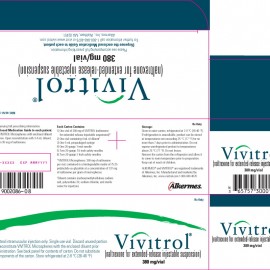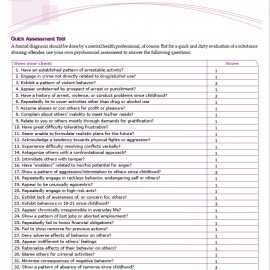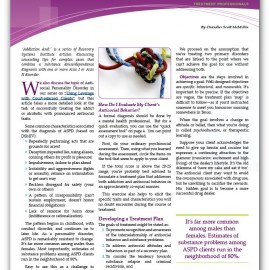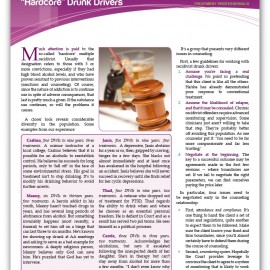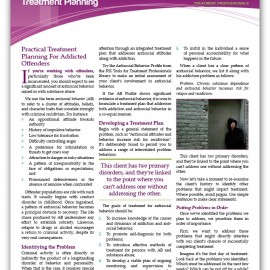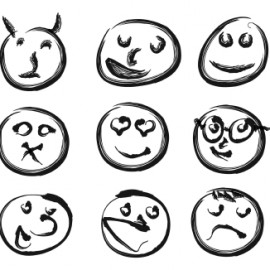Topic: addicted offenders
We see addicted offenders in a wide variety of settings. They run a gamut from community programs that deal with court-referred DUI/DWI clients, publicly-funded programs for low- or no-income addicts, facilities for adjudicated youth- all the way to substance abuse programs operated for or in correctional facilities. While the 3rd-time DUI offender without other criminal history may be very different from the high schooler caught dealing oxy pills to classmates, and both are different from the adult felon with the assault conviction and the gang connections, they all have one thing in common: their disease. And they are likely to present a common problem to the clinician: They’re rarely, if ever, self-referred or highly motivated to undertake abstinence-based recovery. RecoverySI has worked with many facilities that deal with addicted offenders, building clinical programs and training staff. We’ve collected blog posts, articles, and tools related to this topic and tagged them for easy reference in this feed. You can bookmark it, or find it by searching on “Addicted Offenders.”
XR-Naltrexone: Too Expensive to Help?
Naltrexone maintenance is a lot cheaper than prison. But it’s a lot more expensive than methadone maintenance, which dulls some of its luster.
Topics: addicted offenders, addiction medications, opioids
Evaluating Antisocial Behavior: Quick Assessment Tool
Clinicians working with addicted offenders and ‘coerced’ (court-ordered) clients often find these problems complicating substance abuse treatment; this tool can help identify particular areas of concern.
Topics: addicted offenders, antisocial, therapies and tools, treatment planning
Addiction And: ASPD
With a little leverage and some understanding of effective therapeutic technique, you can increase the chances of successful outcomes with these clients.
Topics: addicted offenders, alcoholism, assessment, client types and needs, co-occurring disorders, counseling skills, personality disorders
Counseling Challenge: “Hardcore” Drunk Drivers
Repeat DUI/DWI offenders can pose tough challenges for treatment programs and counselors. The needs of the client and the demands of the legal system don’t always work together.
Topics: addicted offenders, client engagement and motivation, compliance and noncompliance, counseling skills, DUI/DWI, leverage
Treating the Antisocial Addict: Treatment Planning
The behavior of antisocial persons is a challenge to traditional substance abuse counseling. Offender populations are packed with antisocial clients. It helps to address these behaviors directly, beginning with the treatment plan.
Topics: addicted offenders, antisocial, co-occurring disorders, counseling, court-mandated, DUI/DWI, juvenile courts, personality disorders, treatment, treatment planning
Inpatient Management: Dealing with the Tempests in the Teapot
I like to say that most of the conflicts are a tempest in a teapot — the problem being that you are in the teapot along with the tempest.
Topics: addicted offenders, clinical management, inpatient treatment
Engaging Coerced DUI Clients
First, they don’t understand why they’re in treatment, or how it could possibly benefit them. Second, they’re ticked off about having been coerced.
Topics: addicted offenders, client engagement and motivation, client types and needs, DUI/DWI, groups, legal problems
Using Leverage in Counseling the Court-Referred Client
Having a judge or a parole officer holding the big stick on them may be enough to get them into treatment, but it’s usually not enough motivation to get them beyond the minimum of compliance.
Topics: addicted offenders, criminal courts, DUI/DWI, legal problems, leverage, treatment, Using Leverage Series
A Big(ger) Picture: Juvenile Crime
Topics: addicted offenders, adolescent addiction, case management, juvenile courts, Treating the Juvenile Offender
Treating the Juvenile Offender
We mobilize legions to deal with them: Judges, law enforcement, parole officers, counselors, teachers, case managers, but their problems persist.
Topics: addicted offenders, adolescent addiction, case management, juvenile courts, Treating the Juvenile Offender

